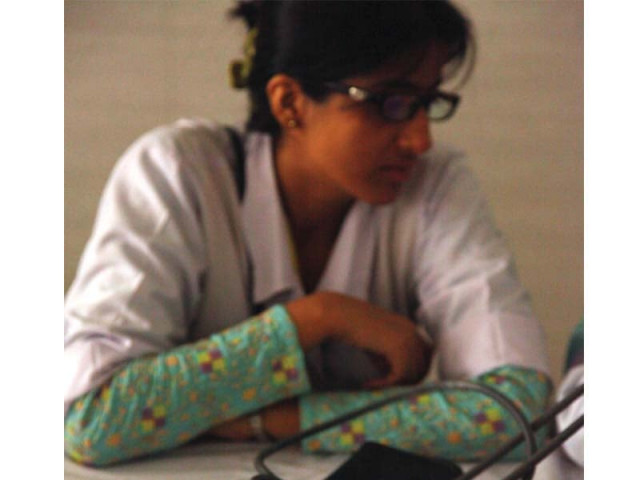Reflux motion: Private medical schools to now cough up ‘foregone’ fees
Committee to prepare permanent admissions deadline calendar.

For years, students would have to forgo thousands of rupees in non-refundable admission fees paid to private medical colleges if they later ended up choosing to study in a government medical institution. The problem was that their deadlines differed and not wanting to risk being left high and dry, students would apply to both public and private schools just in case they didn’t make it to one.
This year though some medical school applicants in Sindh can breathe a sigh of relief. In a meeting at Governor House on Saturday, all private medical colleges and universities decided that they would reimburse admission fees for students who later won a seat on merit at government colleges.
A six-member committee headed by Karachi University’s vice chancellor will also design a permanent calendar on admissions deadlines. This will help students and parents make a decision on which type of institution they want to choose.
An applicant, Asif, welcomed the move. “This is a great step,” he told The Express Tribune. “The whole controversy over the last few years was that public colleges delayed releasing their admissions list as a result of which private colleges made a lot of money on admissions fees.”
Schools at the meeting also agreed that any tuition fees paid by the prospective student would be reimbursed. Some private medical institutions have already been doing this. “For the last few years, Ziauddin university’s policy has been that if a student informs them prior to the start of classes then they are returned their entire payment,” explained Faisal Farooqui, who is its director for public affairs.
Ziauddin University charges a total package of Rs713,000, including first year’s tuition as well as an admission fee. The entire amount is refundable if certain conditions are met.
According to Aga Khan Medical University’s admission website, the private medical college charges Rs58,000 plus other miscellaneous costs, which add up to Rs84,300.
“I have a friend who didn’t even want to apply to private colleges because he doesn’t want to lose all the money paid in admission fees,” said another prospective medical student Amjad. “Obviously public colleges are a great deal cheaper and some of them are very good. For many, it is their first choice and for those who can’t afford private medical colleges this [decision to reimburse fees] is a huge relief.”
This year Ziauddin University plans to put up its admission list on October 7, just three days before the government announces its list. Till now, neither of the two major private medical colleges, Ziauddin or AKUH, have charged applicants any tuition or admission fees, nor have they released their list of admitted students.
Many public sector universities welcomed the announcement. “The decision will benefit students who want to switch to public sector universities after enrolling at private universities,” said Dr Saroop Bhatia, a spokesman for the vice chancellor of Liaquat University of Medical and Health Sciences at Jamshoro. “The cost of learning in the private sector, even for students selected on merit, is higher than the self-financed seats at public varsities.”
LUMHS charges first year MBBS and BDS merit students Rs42,000 as tuition. From the second to the final years, student pay Rs30,400 in annual fees. The self-finance seats cost between Rs360,000 and Rs400,000 in annual fees.
Likewise, at Chandka Medical College, Larkana students pay Rs42,000 for the first year and Rs27,000 till the final year. In contrast, a private medical college charges over Rs500,000 in annual fee on merit seats.
The competition is tough and the number of seats are limited. According to AD Mallah of LUMHS, the university has 350 seats, including 234 on merit, for its MBBS programme. The BDS programme has 101 seats, including 48 for meritorious students. Similarly, Chandka Medical College has offered 310 seats on merit.
Compare this with the number of students applying, which runs into the thousands. As many as 14,238 students passed the pre-medical group exams of the Higher Secondary Certificate in Hyderabad this year. Out of them, 780 were graded A-1, nearly double the number of seats available at LUMHS.
With additional reporting by Z Ali in Hyderabad
Published in The Express Tribune, September 25th, 2011.



















COMMENTS
Comments are moderated and generally will be posted if they are on-topic and not abusive.
For more information, please see our Comments FAQ